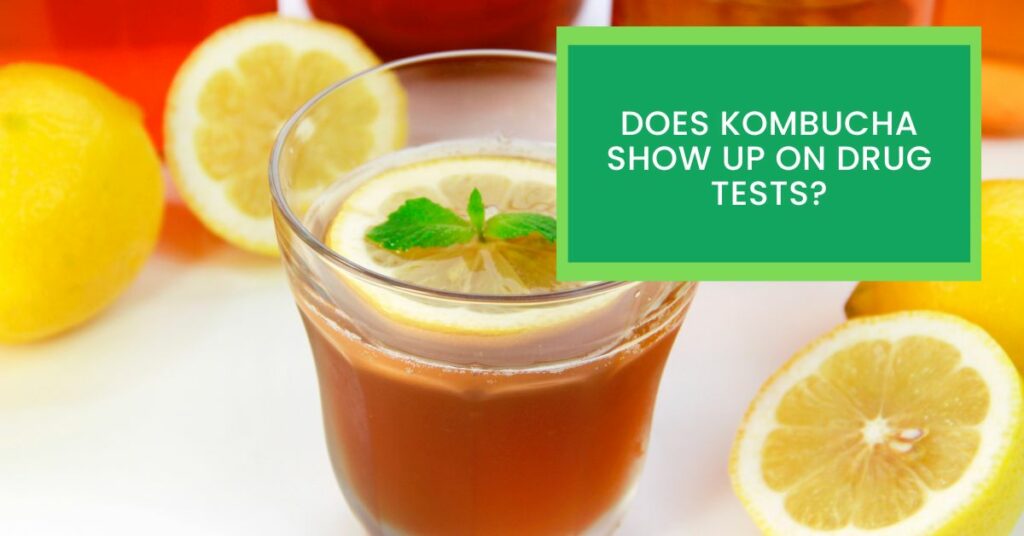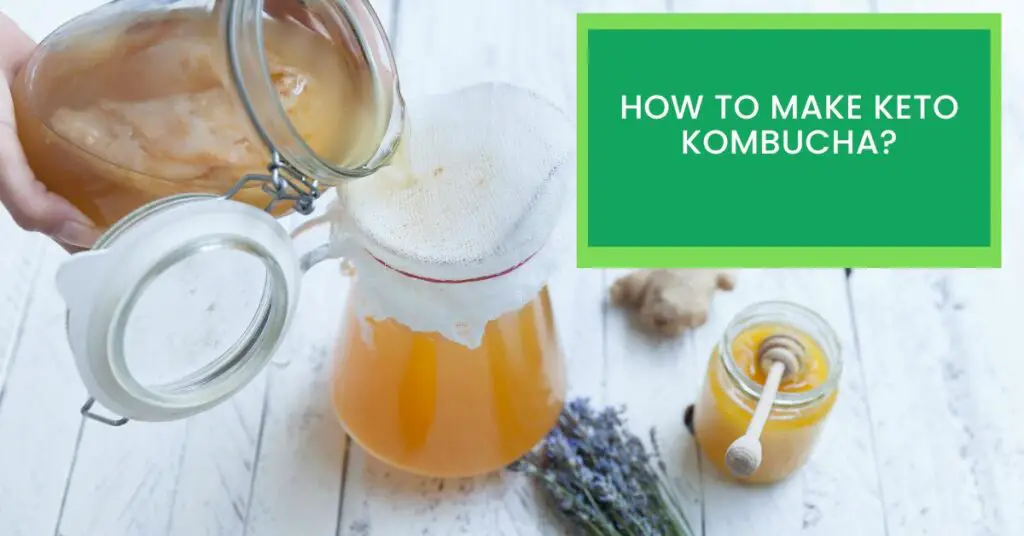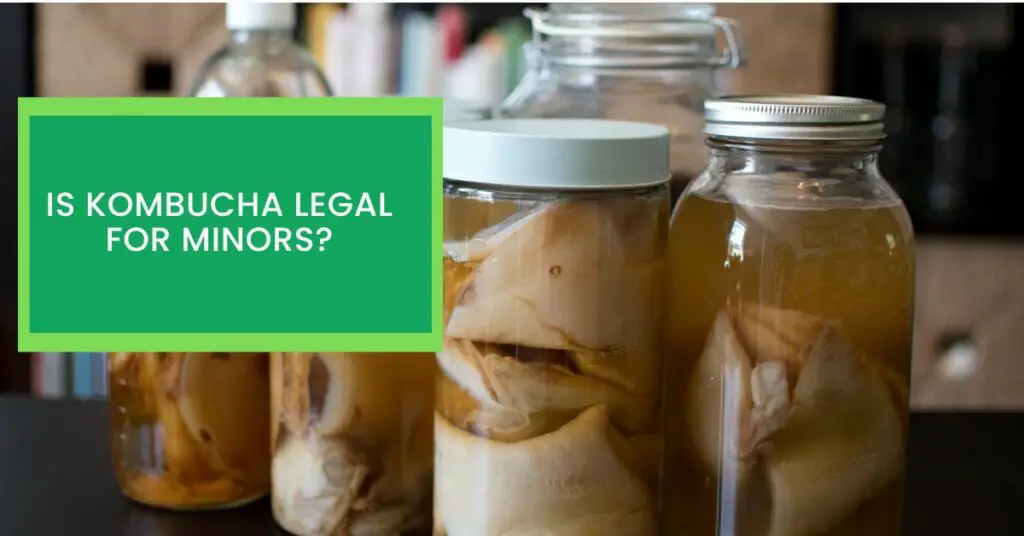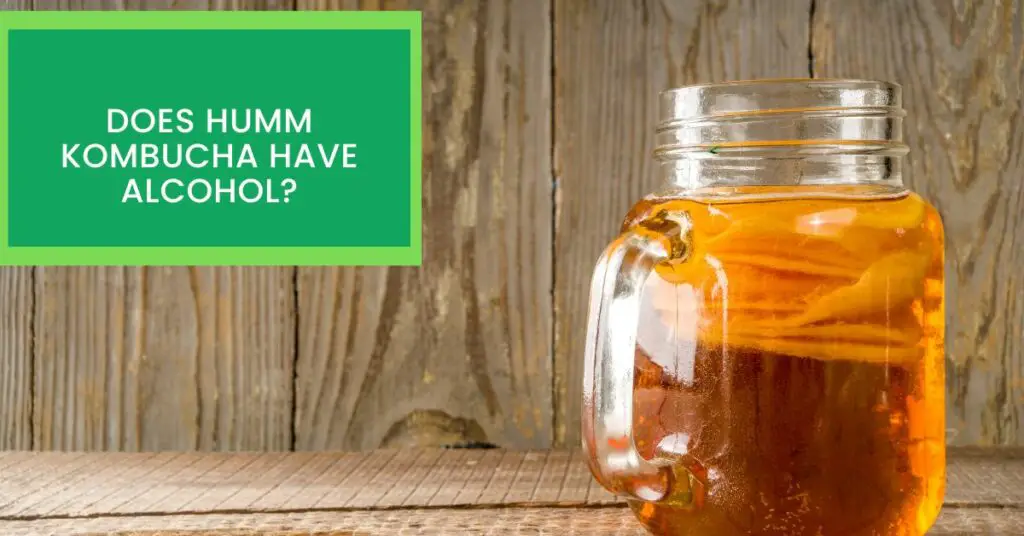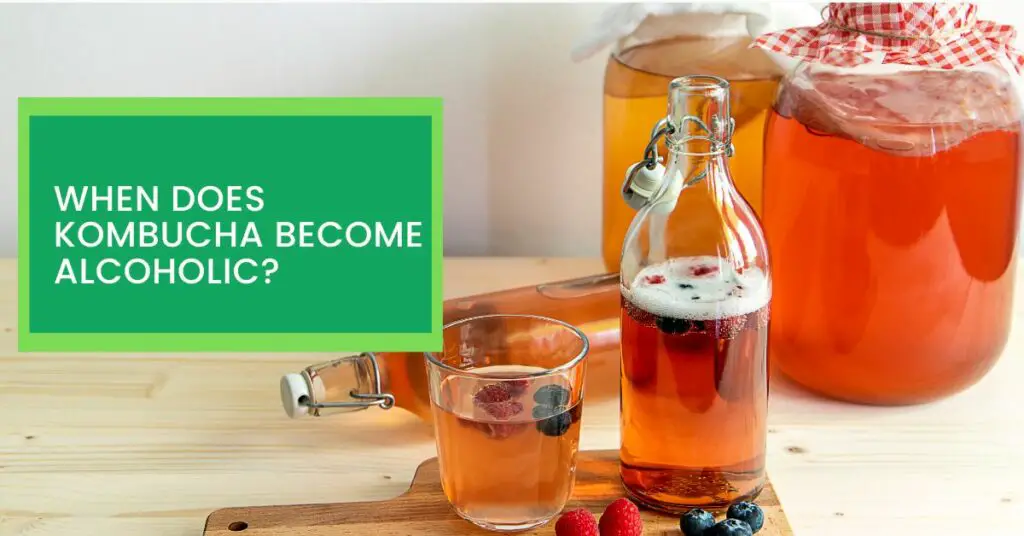Kombucha is a type of fermented tea that has become popular in recent years.
While traditionally, kombucha is non-alcoholic, some commercial brands now sell versions that contain a small amount of alcohol. Most people wonder whether kombucha shows up on drug tests.
The truth is kombucha does not show up on drug tests. However, kombucha contains small amounts of alcohol and caffeine.
In this article, we will discuss everything you need to know about kombucha and drug tests.
How Does Kombucha Process?
Kombucha is a fermented beverage made from sweetened black or green tea. It’s made by adding a colony of bacteria and yeast to the tea, which ferments the sugars in the tea and creates kombucha.
The fermentation process takes around seven to ten days, during which time the kombucha becomes slightly alcoholic and carbonated. It’s then ready to drink!
Kombucha is often touted as a health elixir, and while there are some health benefits associated with drinking kombucha, it’s important to remember that it is still an alcoholic beverage and should be consumed in moderation.
What is The Alcohol Content in Kombucha?
Kombucha is a fermented beverage made from sweetened tea.
It’s usually made with black or green tea but can also be made with fruit juices. The fermentation process produces bacteria and yeast that create ethanol (alcohol) and carbon dioxide gas.
The alcohol content of kombucha depends on a few factors, including the type of tea used, the length of time it’s fermented, and how much sugar is added.
Most commercial kombuchas have very low alcohol levels (<0.5%). However, there are some brands that have a higher alcohol content (up to 2%).
If you’re looking for a non-alcoholic alternative to kombucha, there are many brands that make alcohol-free versions.
Can Kombucha Cause False Positive For Alcohol?
Kombucha is a fermented tea that has been enjoyed for centuries. It is made by adding a colony of bacteria and yeast to sweetened black or green tea. This fermentation process produces ethanol, which is why kombucha may cause a false positive on an alcohol breath test.
If you are concerned about kombucha causing a false positive on an alcohol breath test, it is best to avoid drinking it before the test. However, if you do drink kombucha, be sure to let the testing officer know so they can take this into account.
Kombucha is generally safe to drink, but there are a few things to keep in mind.
First, kombucha can contain a high amount of sugar, so it is best to consume it in moderation. Second, some people may experience an upset stomach after drinking kombucha, so it is best to start with a small amount and see how your body reacts.
How Long Does it Take Kombucha to Leave Your System?
However, because kombucha is a fermented food, it does contain small amounts of alcohol. This means that if you are consuming kombucha on a regular basis, it can stay in your system for up to 24 hours.
If you are wondering how long it takes kombucha to leave your system, the answer depends on a few factors.
First, the amount of kombucha you consume will affect how long it stays in your system. If you drink a lot of kombuchas, it will take longer to leave your system than if you drink a small amount.
Second, your body type will also affect how long kombucha stays in your system. If you have a slow metabolism, kombucha will stay in your system for a longer period of time than if you have a fast metabolism.
Finally, the type of kombucha you drink will also affect how long it takes to leave your system. If you drink raw, unpasteurized kombucha, it will take longer to leave your system than if you drink pasteurized kombucha.
This is because the fermentation process in raw kombucha creates more beneficial bacteria that can take longer to be broken down by your body.
How Much Kombucha Makes You Sober?
Some people also believe that kombucha can help to sober you up after drinking alcohol. How much kombucha does it take to sober you up?
Over six kombucha bottles. It also depends on a number of factors, including your weight, how much alcohol you have consumed, and your metabolism. However, there are a few things you can do to help speed up the sobering-up process.
Firstly, drink plenty of water. This will help to flush the alcohol out of your system.
Secondly, eat some food. This will help to line your stomach and slow down the absorption of alcohol into your bloodstream.
Thirdly, drink a cup or two of strong coffee. The caffeine will help to wake you up and make you more alert.
Finally, if you are really struggling to sober up, you could try taking a cold shower. The shock of the cold water will help to wake you up and make you more alert.
How to Take Kombucha Moderate
While kombucha can be consumed in large quantities, it is important to drink it in moderation. Here are some tips for how to take kombucha moderate:
1. Start with small amounts: If you are new to drinking kombucha, start by consuming small amounts. Drink 1-2 ounces per day and increase your intake gradually over time.
2. Listen to your body: Everybody is different and will react differently to kombucha. Pay attention to how your body feels after drinking kombucha and adjust your intake accordingly.
3. Drink it with meals: Kombucha is best consumed with food since it can help aid digestion. Try sipping on kombucha during or after meals.
4. Stick to plain flavours: If you are just starting out, stick to the plain flavours of kombucha. Avoid flavours that are too sweet or too sour, as these can be hard on the stomach.
5. Choose quality kombucha: Not all kombucha is created equal! Make sure you are choosing a high-quality kombucha that is made with organic ingredients and contains live probiotics.
By following these tips, you can enjoy kombucha as part of a healthy diet. Drink kombucha in moderation and listen to your body to ensure that you are getting the most out of this delicious and nutritious beverage!
Frequently Asked Questions Related to Kombucha And Drug Testing
1. Can you get a DUI for drinking Kombucha?
Not if you drink one or two bottles of kombucha. A DUI would only occur if you were driving while impaired, and drinking kombucha is not going to make you impaired.
If you’re concerned about how alcohol might interact with kombucha, it’s best to speak with a healthcare professional.
2. Does kombucha count as alcohol?
It’s a common misconception that kombucha is an alcoholic beverage, but this isn’t actually the case.
While kombucha does contain trace amounts of alcohol, it’s far below the threshold that would classify it as an alcoholic drink.
In fact, most store-bought kombuchas have less than 0.5% alcohol content, which is lower than many fruit juices and non-alcoholic beer.
So if you’re worried about drinking alcohol, kombucha is probably not something you need to avoid.
3. Which kombucha has more alcohol?
Hard kombucha has more alcohol than regular kombucha. This is because hard kombucha is fermented longer, allowing more time for the fermentation process to convert sugars into alcohol.
However, even hard kombucha typically contains only a small amount of alcohol which is less than 3% ABV. So if you’re looking for a boozy beverage, you’ll probably be disappointed with either type of kombucha.

